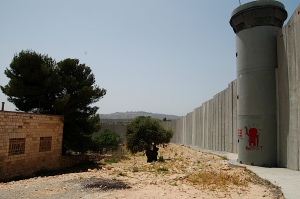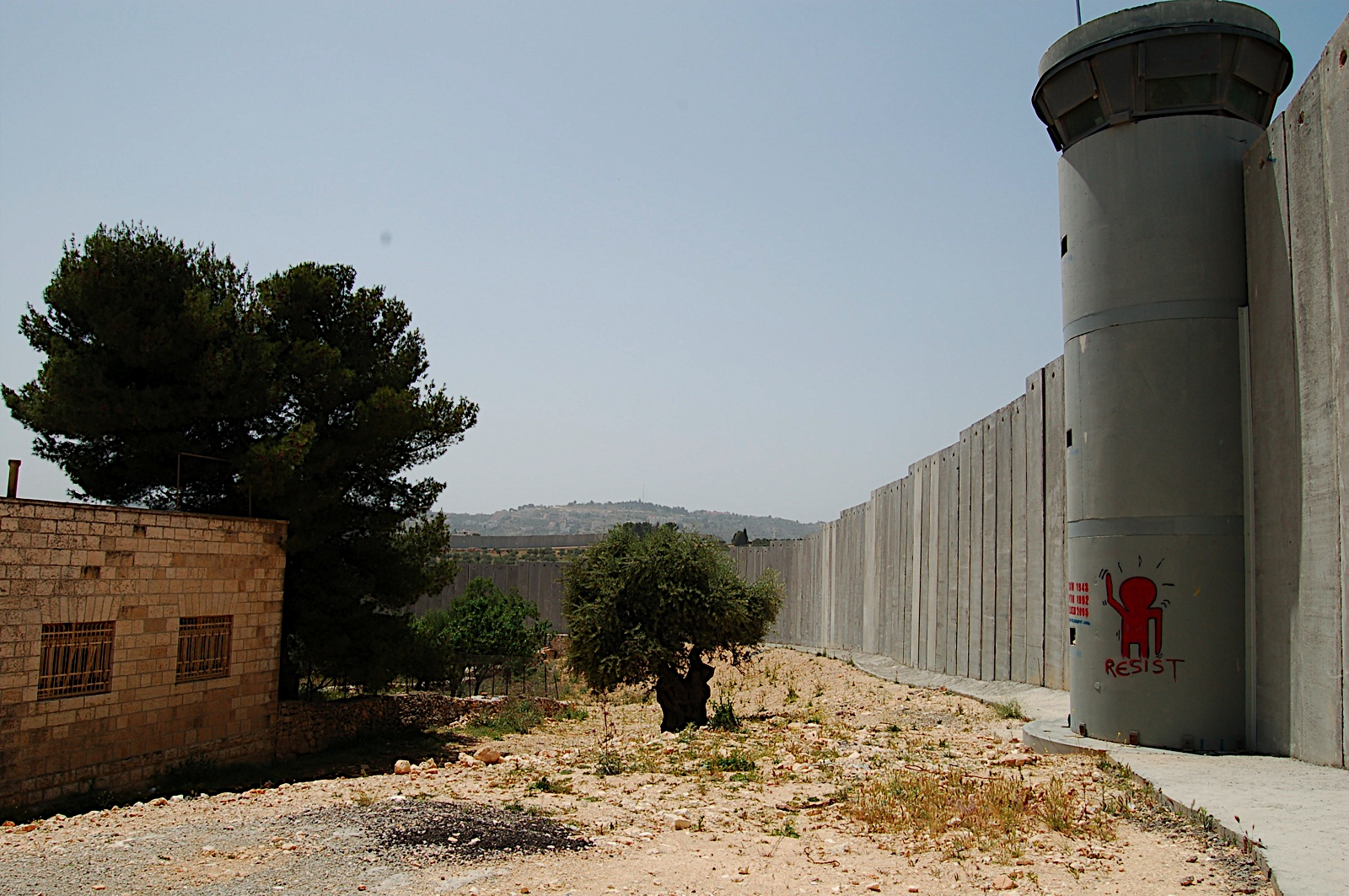Embodying Prophetic Consciousness: The Case of Kairos-Palestine and the U.S. Response – by Don Wagner

Theologian Walter Brueggemann’s recently updated volume The Prophetic Imagination opens with the author’s reflections on why the Prophets might have renewed relevance in 2012. Two of his observations struck home for me. The first concerns how “liberation theology” was barely on his radar in the first edition (1978), but today he sees it as an essential Biblical hermeneutic for interpreting the Hebrew Prophets and Jesus.
Brueggemann’s second observation sharpens his theological point and “gets in our face” a bit, claiming there is an absence of “prophetic consciousness” in our churches, synagogues, mosques, the academy, and society at large. He writes: “When one considers the issues of liberation and exploitation on the ground, then the intimate contact between biblical texts of a prophetic sort and matters of social justice, social interest, and social criticism seem to me to be incontrovertible. Moreover, the enmeshment of the United States church in the raging force of globalization and the easy accommodation of church faith and practice to consumer commoditism make the urgency of “prophetic consciousness” palpable among us.”1 Let’s call it “embodying prophetic consciousness.”
OK Walter, that’s easier said than done. “Embodying prophetic consciousness” is usually a slippery slope and one that raises the bar of consequences, whether it is institutional financial stability, job security, personal reputation, or a politician’s election campaign. Think of Jesus’ return to his hometown when he commented on the daily Torah portion in the local synagogue. The congregation responded by escorting him to a nearby cliff and threatened to throw him down into the abyss. Jesus’ casual remark after the incident is clearly understated: “No prophet is welcome in his hometown.”2 And quite often the prophet is not welcomed in the pulpit, as was his experience in Nazareth.
There are few contemporary issues that illustrate severe consequences and institutional angst as much as the long, protracted Israeli-Palestinian conflict. Many of us are aware of the pressures on politicians or even past Presidents who have challenged the pro-Israel narrative that dominates the mainstream media and political discourse in the United States. Jimmy Carter is among those who have seen what Israel is doing in the occupied territories and written about it, taking considerable abuse. Archbishop Desmond Tutu is another. Admittedly, the pro-Israel lobby organizations (both Jewish and Christian) have been highly successful in telling their side of the story by framing it with attractive sound bites: “Israel is the only democracy in the Middle East,” and “our closest ally in a sea of Islamic extremism,” or “the tiny ‘David’ going up against the mighty Goliath” (the Arab and Islamic world). It’s easy to grasp, and their points make sense—at least until you question the logic, or better, see the Occupation up close.
Occasionally another Israeli narrative surfaces, such as recent claims by Israeli officials that Christians in Israel have grown by 1000% under Israeli rule. This was followed by an op-ed in the Wall Street Journal on March 9, 2012, by Michael Oren, Israel’s Ambassador to the United States, where he claimed Israel was the only safe haven for Christians in the Middle East. According to Oren, “Islamic extremism” is the reason some Christians leave the Israeli occupied West Bank, Gaza Strip, and East Jerusalem. His message is intended to resonate with the predominantly Christian west, especially the United States.
What Oren fails to tell us, however, is that Palestinian Christians and Muslims have been living together in harmony for centuries in what we call the Holy Land. They also face the same brutal treatment at the hands of the Israeli occupiers, die from the same bullets, see their homes bulldozed and their lands confiscated and turned into illegal Jewish (only) settlements. They live behind a 24-foot wall that chokes their towns and villages and cuts off farmers from tilling their lands, whether they are Christians or Muslims. The Israeli occupation is an equal abuser of Palestinian Christians and Muslims.
Israel’s respected daily, Ha’Aretz, carried a biting response to Ambassador Oren on March 26, 2012, by reporter Amira Hass. Hass cited a letter sent by eighty prominent Christian Palestinians, accusing Oren of manipulating the facts, stating: “Your attempt to blame the difficult reality that Palestinian Christians face on Palestinian Muslims is a shameful manipulation of the facts intended to mask the damage that Israel has done to our community.” They added, “The exaggerated growth of the Christian population in Israel that Mr. Oren claims is due primarily to the immigration of Russian Christians whom Israel was unable to distinguish from the Jewish immigrants pouring into the country after the fall of the Soviet Union.”3
In 2006, a survey of Palestinian Christians was conducted by Rifat Qassis, coordinator of Kairos-Palestine, asking why they were leaving their homeland. Qassis told Ha’Aretz: “the vast majority said their desire to emigrate was linked to the lack of security and stability they feel under Israeli rule. Less than one percent spoke about being afraid of Muslims.” The Kairos-Palestine letter to Oren added: “In the case of Bethlehem, it is in fact the rampant construction of Israeli settlements, the chokehold imposed by the separation wall and the Israeli government’s confiscation of Palestinian land that has driven many Christians to leave.”4
Palestinian Christians have been appealing to the world for nearly five decades concerning the rapid decline of Christianity in the occupied Palestinian territories. Few have listened. It is no mere coincidence that when Israel’s military occupation began in June 1967, Palestinian Christians were 13% of the West Bank, East Jerusalem, and Gaza Strip population. Today they are a meager 1.1 to 1.2% and well below 1% if you factor in 500,000 Jewish settlers now living in illegal settlements in the Palestinian territories. Some church leaders fear that at this rate there will be no Christians left in these parts of the Holy Land within a generation, unless something dramatic causes Israel to change its intransigence.
Palestinian Christians have stepped up their appeals to the world in recent years, culminating in the December, 2009 Kairos-Palestine Document. The statement is modeled after the 1985 Kairos South Africa document that awakened the global church and peace movement concerning the evils of the white South African Apartheid system and declared Apartheid a “sin.” Kairos-Palestine pinpoints the Israeli military occupation in the same way, a “sin” that has in fact become a racist apartheid system, privileging Jewish settlers and exploiting Palestinians within their own territories.
Like Kairos-South Africa, Kairos-Palestine is a prophetic cry to the global church and civil society, calling for an immediate response and courageous, prophetic actions. The authors of Kairos-Palestine summarized the essence of their message in a postscript to the Declaration: “In this historic document, we Palestinian Christians declare that the military occupation of our land is a sin against God and humanity, and that any theology that legitimizes the occupation is far from Christian teachings because true Christian theology is a theology of love and solidarity with the oppressed, a call to justice and equality among peoples.”5 Echoes of Martin Luther King’s “Letter from a Birmingham Jail” are unmistakable.
In one of its most controversial sections, the authors invoke non-violent strategies, like those conducted during the struggle for civil rights and opposition to Apartheid in South Africa. No one in the pro-Israel community complained when these methods were used in those cases, and Israel used the boycott strategy in a number of cases. But when Palestinians call for divestment or boycotts, and their friends follow their lead, everything is different.
Kairos-Palestine argues that endless peace conferences, dialogue, and diplomacy have only brought more suffering to the Palestinian people. Now it is time for other methods, and they choose to follow the ethics of Jesus: “Christ our Lord has left us an example we must imitate. We must resist evil, but he taught us that we cannot resist evil with evil. This is a difficult commandment, particularly when the enemy is determined to impose himself and deny our right to remain here in our land…(Therefore) Palestinian civil organizations, as well as international organizations, NGOs and certain religious institutions call on individuals, companies and states to engage in divestment and in an economic and commercial boycott of everything produced by the occupation. We understand this to integrate the logic of peaceful resistance. These advocacy campaigns must be carried out with courage, openly and sincerely proclaiming that their object is not revenge but rather to put an end to the existing evil, liberating both the perpetrators and the victims of injustice.”6
Inspired by Kairos-Palestine, a group of U. S. clergy, theologians, and laity met recently to consider “a bold, prophetic stand for justice in the Holy Land.” They added: “In acknowledging this Kairos moment, we call on the U.S. churches to take up the challenge. There is an urgent need to support nonviolent resistance to oppression on the part of Palestinian and Israeli civil society and to continue to build the growing international grassroots movement that will break the current political log-jam.”7
“Kairos-Palestine: A US Response” plans to bridge the divide among U.S. Evangelicals, mainline Protestant, Roman Catholic, and African-American denominations, as all were represented at the organizing meeting. Among the programmatic goals of this response are calls for pilgrimages to Israel/Palestine; dissemination of a “Call to Action” with accompanying study materials for churches, universities, and community organizations; convening a summit on the theology of the land, peoplehood, and prophetic justice; and connecting U.S. churches, synagogues, and mosques to civil society in Israel and Palestine, as well as to Kairos Palestine movements around the globe.
The timing of these efforts could not be more relevant as at least two major U.S. Protestant denominations will consider resolutions on morally responsible investment in the coming months. In late April 2012, the United Methodist Church will consider such a resolution at their international assembly in Tampa, Florida, followed by the Presbyterian Church (U.S.A.) in July 2012 in Pittsburgh, PA at its General Assembly. Both resolutions are responses to the call from their sister churches in Israel and the Occupied Territories. The churches are applying the same ethical principles for morally responsible investment as they have applied in previous cases such as Apartheid in South Africa, Sudan ethnic cleansing in Darfur, and divesting from corporations producing weapons or instruments that destroy lives or the livelihood of civilians.
Perhaps it is ironic that the global church, and particularly churches in the United States, are being challenged by a courageous, prophetic “call” from a small but courageous community, their sisters and brothers in the very lands where the Christian message was first heard. These sisters and brothers are hoping and praying that the global church will not let them down in their hour of need and will begin to embody prophetic consciousness.
1. Walter Brueggemann, The Prophetic Imagination, Augsburg Fortress Publications: (2012, Kindle Edition).
2. Luke 4: 24 (English Standard Version; read Luke 4:14-30 for the whole incident).
3. “Christian Palestinians: Israel ‘manipulating facts’ by claiming we are welcome,” Amira Hass. Ha’aretz (March 26, 2012) (www.haaretz.com. accessed March 26, 2012)
4. Ibid.
5. Kairos-Palestine, www.kairospalestine.ps
6. Ibid.
7. “Kairos-Palestine: A US Response” will provide theological analysis and resources starting with a “US Document”; please address requests to info@kairosusa.org
Rev. Dr. Don Wagner is the National Program Director of FOSNA, Friends of Sabeel–North America, working closely with faith based communities in the US and Canada to promote a just peace in Israel/Palestine. Previously he was a Professor of Middle East Studies and Director of the Center for Middle Eastern Studies at North Park University in Chicago. He is an ordained PC(USA) clergyman.

